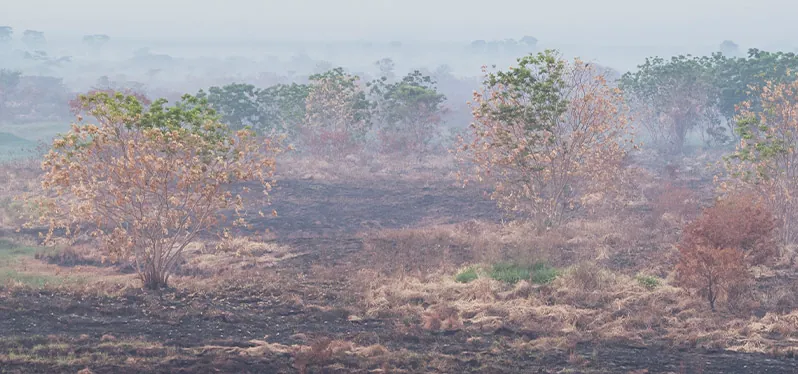Posted in: 07/19/2021
The current water levels in Brazil’s main reservoirs are causing concern among experts and the government about a possible hydric crisis and electric blackout in 2022, if no rationing measures are taken this year. The shortage of rainfall in the regions facing the country’s hydroelectric plants is already the worst in 91 years, according to the National Electric System Operator (ONS).
The reduction in rainfall in the South and Southeast regions of the country has been showing signs of worsening for a long time, but the intense burning and deforestation in the Amazon region in 2020 had a decisive participation in this process, according to experts. In addition, climate change also directly affects the scenario.

Recently, the former director-general of the National Electric Energy Agency (Aneel), Jerson Kelman, gave an interview in which he said that, although the low volume of rainfall and water in the reservoirs is alarming, the expectation is that we will not reach the same level of water crisis and lack of electricity supply as in 2001.
For him, in the year when we had one of the biggest blackouts in Brazil’s history, we still didn’t have several other sources of energy generation that, today, can help reduce the severity of the situation, providing other options and making the system less dependent only on rainfall and hydroelectric plants.
But Kelman’s theory is also refuted by some experts who point out that while we have increased the sources of energy at our disposal, we have also increased consumption, becoming much more dependent on technologies that need electricity for their operation.
And, although we are not at risk of a drought and water crisis similar to that of 2014, as we have seen, just hoping for rain is by far one of the least effective measures.
The government needs to invest in awareness campaigns aimed at saving energy consumption, in continuous environmental education initiatives for the sustainable use of water resources, and in renewable energy sources, which enable the generation of clean energy.
Furthermore, it is also necessary that there are subsidies and incentive laws, norms and inspections so that industries, the biggest energy consumers, reduce their electrical expenses and invest in other forms of generation and consumption.
We have selected the most complete news on the subject. Check it out!
What brought Brazil to the brink of a historic water crisis?
Understand the water crisis that threatens the energy supply in Brazil
Water crisis: understand the difference between rationing and blackout
Reservoirs level below desirable generates the threat of a new hydroelectric crisis in 2022
Understand why it is raining less in Brazil and if there is risk of a new water crisis in SP
Sign up and receive our news.